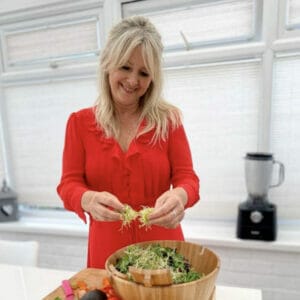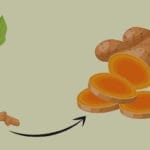Autumn is always the time to begin to give your immune system an extra boost and never has this been more necessary than heading into winter 2021 with different respiratory viruses circulating in the population. Thanks to the ZOE COVID Study it’s been found that eating a plant-rich diet helps with immune support to protect against respiratory viruses like Sars-CoV-2 and people are less likely to end up in hospital with these infections.[1]
An Immune Protecting Diet
The Kings College study found that eating a high quality, plant-based diet including fruits, vegetables, legumes (beans and pulses), seeds and whole grains, as well as eating oily fish and fewer highly processed foods, protected against viral infection. A major reason for this is an improvement in the gut microbiome from the higher fibre diet where diverse gut microbiome confers greater immune resilience. However, we may know what to eat but how can we ensure that we are getting all the right nutrients on a regular basis? This can definitely be more of a challenge especially with busy family and working lives.
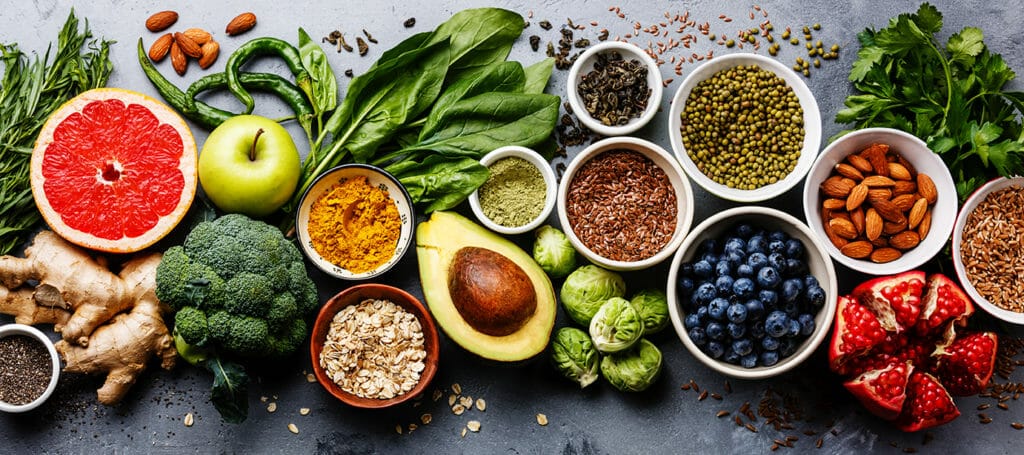
Immune Support – Diet Tips
1. Plant Food Diversity
Boosting your daily intake of plants is the quickest way to improve the quality of your diet but this really doesn’t have to be difficult. Plant-based food includes spices, herbs, nuts and seeds, as well as fruit, veg and leafy foods. Try having half your dinner plate as vegetables: Could you add seeds or berries to your usual yoghurt or porridge in the morning? How about adding seeds or nuts on top of a soup or salad lunch?
2. Snacks
Keeping healthy snacks on hand is an easy way to improve your diet quality. Keeping a bag of unsalted, plain nuts and seeds in your bag, desk or car is a quick way to increase the number of plants in your diet
For bigger snack cravings hummus with vegetable sticks or gluten-free crackers is a great alternative, or try sliced apple or banana with 1tsp almond butter. Pick things that you know you’ll enjoy without feeling deprived. There’s nothing worse than an unsatisfying snack!
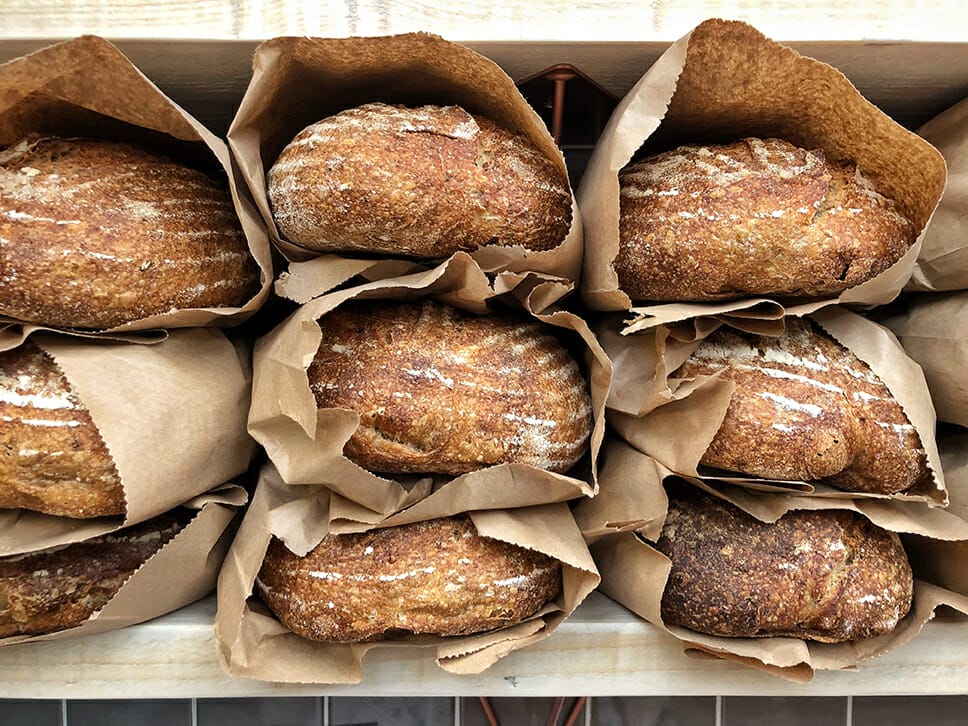
3. Staple Kitchen Ingredients
Wholegrain options of bread, pasta and rice are all available, as are some pretty decent gluten-free options such as red lentil pasta. Try to eat the whole grain version such as brown versus white rice, and if you do eat bread, switch to a slow-fermented sourdough loaf as the fermenting process reduces gluten proteins and increases fibre for the gut microbiome to feed on.
4. Beans
Tinned beans (in water) are the underrated superheroes of a healthy diet. They’re a quick and cheap way of upping the number of plant-based foods you eat. When making your usual dishes try adding new or extra beans into the mix. Butter beans are great in salads and black or aduki beans make a great addition to soups.
5. Frozen fruits and veg
Frozen fruits and vegetables are just as (if not more) nutritious than their fresh counterparts. Plus they are often more affordable and last longer. Frozen veg is great for a quick and easy way to bulk out meals or add for a healthier breakfast.
6. Fats
Omega-3 fats, found in fish (especially salmon and mackerel) and other seafood, nuts, seeds (like flax seeds and walnuts) and cold-pressed plant oils, support the immune system and heart health.
7. Reduce highly processed foods
As a general rule, the more processed a food is, the less healthy it is for you and your gut and your immune system. Many foods are processed, including milk and cheese, but there is an ever-increasing amount of ultra-processed foods like ready meals and soft drinks that can contain high levels of refined sugar, saturated fats, salt, and chemical additives, so it’s a good idea to switch them out for less processed alternatives where possible.
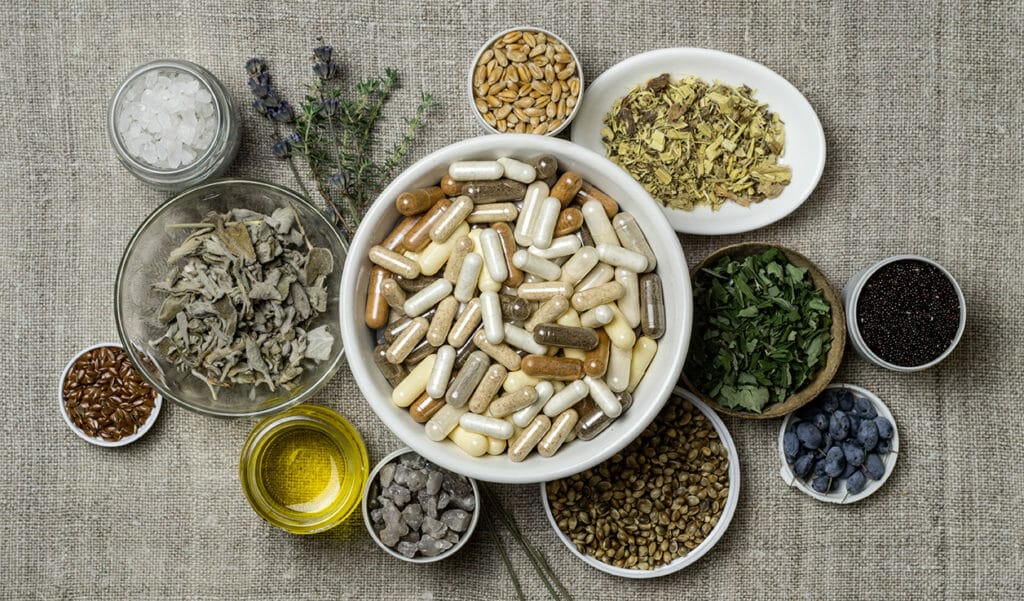
Immune Support – Supplements
However much we try with the diet it’s still not always possible to get all the nutrients at the levels our immune system needs.
Vitamin D
Vitamin D is one such nutrient, and with reduced levels of sun exposure in the winter, then taking a daily Vitamin D supplement is crucial. NHS guidelines suggest between 1,000-4000 IU daily and for vegans, there are Vitamin D supplements derived from algae rather than many products extracted from lanolin in sheep’s wool.
Vitamin A
Vitamin A is not to be underrated – it is particularly important for respiratory tract and digestive health. The way vitamin A was described before it became known as a vitamin was as the “epithelial nutrient.” So, vitamin A is important for the healing of the lining of our gut and also very important for lung health. Some of the receptors of vitamin A and D are shared and they both play an important role in immune function so combining Vitamin A and D in a supplement may provide immune support.[2]
Probiotics
A plant-based fibre rich diet is the best way to increase the diversity of beneficial gut bacteria but studies show that certain species of bacteria found in probiotic supplements may also support immune function. Lactobacillus rhamnosus GG (LGG)[3] and Bifidobacteria, along with Saccharomyces Boulardii are all strains that produce favourable immune-boosting results. For more information please enjoy the Nutrigold blog Probiotics and the Immune Response
Vitamin C
Vitamin C is well known for its immune-supporting properties and taking an extra dose of this water-soluble vitamin across the day is a wide move this winter. There are several ways to get your daily supplement needs from liposomal form – considered to be the “Rolls Royce” of vitamin C for its superior gut absorption properties – to straightforward buffered vitamin C powder.
Zinc
Zinc is a very important nutrient for the immune system, as well as many other enzyme functions that support healthy biochemical and physiological pathways. Zinc supplementation reduced the risk of pneumonia by 64% in critical care patients on ventilators.[4] Zinc in citrate form is high bioavailability, i.e. it is well absorbed in the body, and can be taken in a capsule form though chewable natural flavour tablets can be an easier way for people to get their daily dose.
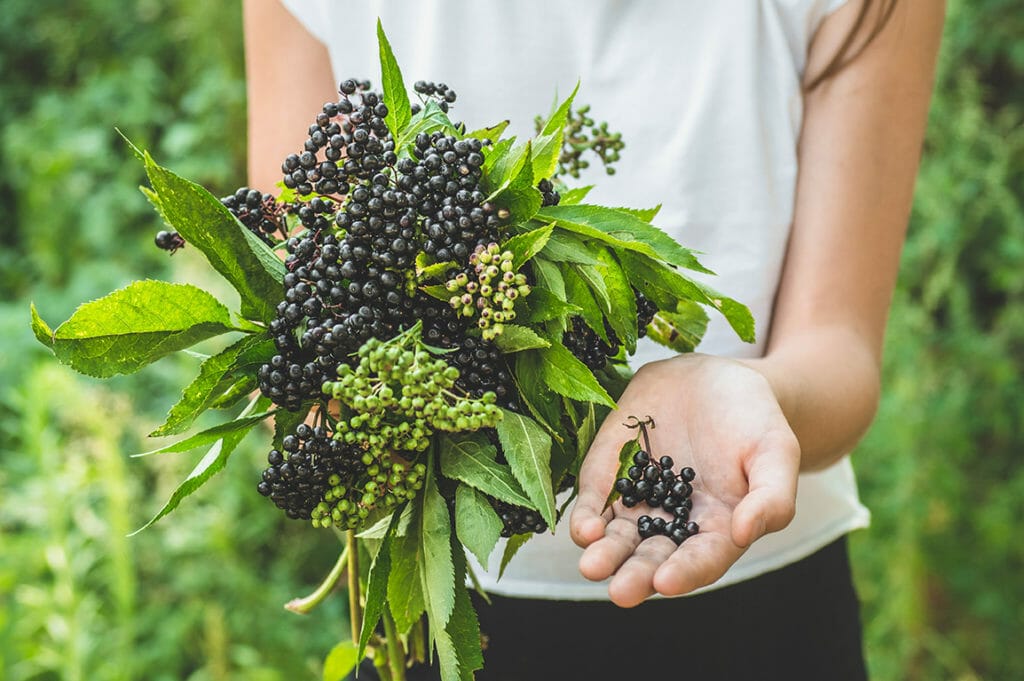
Elderberry
Flowering Elderberry (Sambucus nigra) is known for its characteristic bluish-purple berries, which are special as these tiny fruits are packed with antioxidants, including anthocyanins, bioflavonoids, phenols, as well as vitamin C. These groups of antioxidants are important because they neutralise free radicals, which are waste products of cells that increase oxidative stress resulting in cell and DNA damage and even cell death. Free radicals can accumulate due to a wide range of stressors and insults from environmental causes like pollution and exposure to chemicals, as well as from viral infection and stress within the body.
In a study of 60 people with influenza A and B (a virus that can cause the ‘flu), those who took 15ml of elderberry syrup (i.e. concentrated elderberry juice) four times per day showed symptom improvement in 2-4 days, while the control group took 7-8 days to improve.[5]
A 2019 meta-analysis of randomised trials of 180 participants studying the effects of elderberry in cold and flu concluded that this extract is effective in substantially reducing upper respiratory symptoms.[6]
For more information please enjoy the Nutrigold blog on Elderberry – Natures Natural Immune Super Booster
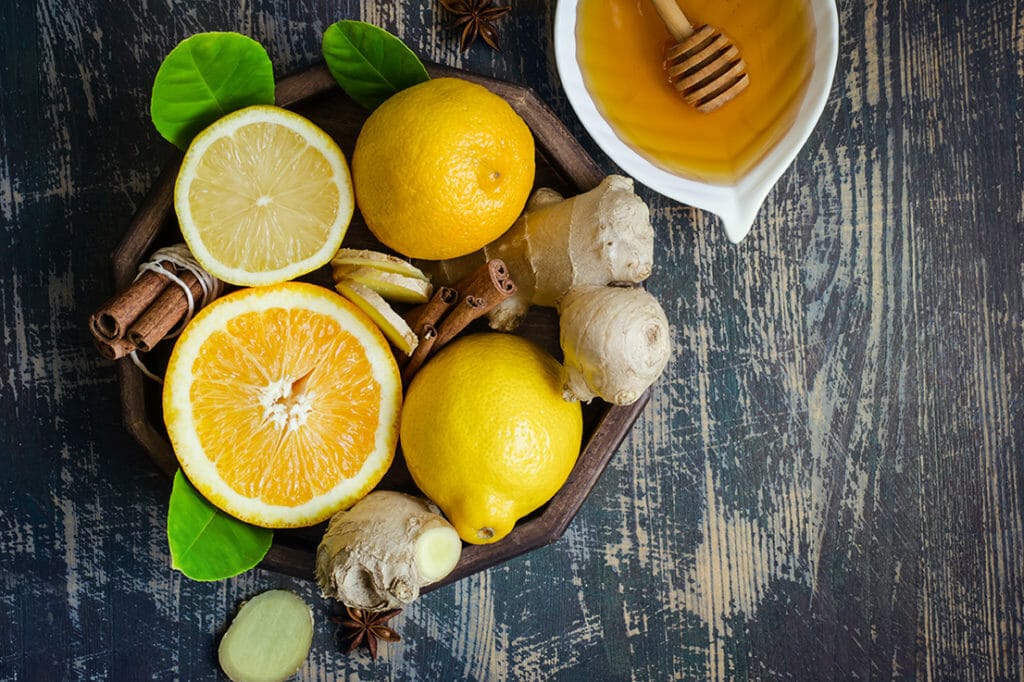
Final Thoughts
There are lots of easy wins to boost your immure system this winter such as achieved through some simple dietary switches and topping up on essential immune-supporting nutrients through food supplements. We should all be aiming for our optimum “Immune resilience”, which means the best ability to generate an adequate, but not an excessive response to an exposure designed to either infect or promote defensive outcomes – lifestyle, public health, nutrition and stress management remain key determinants!

Dr Elisabeth Philipps is a clinical neuroscientist and functional medicine practitioner and runs a health consultancy specialising in brain health, the endocannabinoid system and phytocannabinoids including CBD and medicinal cannabis. She regularly presents at conferences and events and provides expert opinion for the national press, specialist healthcare publications and health companies. You can connect with Elisabeth via:
www.drelisabethphilipps.com | instagram – @drelisabethphilipps | Twitter – @drphilipps | Linked In – Dr Elisabeth Philipps
[1] https://blog.nutrigold.co.uk/2020/05/01/coronavirus-the-importance-of-our-immune-response/
[2] Allergy Research Group. No, YOU Complete Me: The Synergy of Vitamins A and D. FOCUS Newsletter. Special 40th Anniversary Issue. 2019:17-8.
[3] https://blog.nutrigold.co.uk/2020/07/03/30-years-of-probiotic-research-lgg-still-on-top/
[4] https://blog.nutrigold.co.uk/2020/07/15/zinc-an-essential-nutrient-for-immunity/
[5] https://pubmed.ncbi.nlm.nih.gov/15080016/
[6] https://www.sciencedirect.com/science/article/abs/pii/S0965229918310240?via%3Dihub


